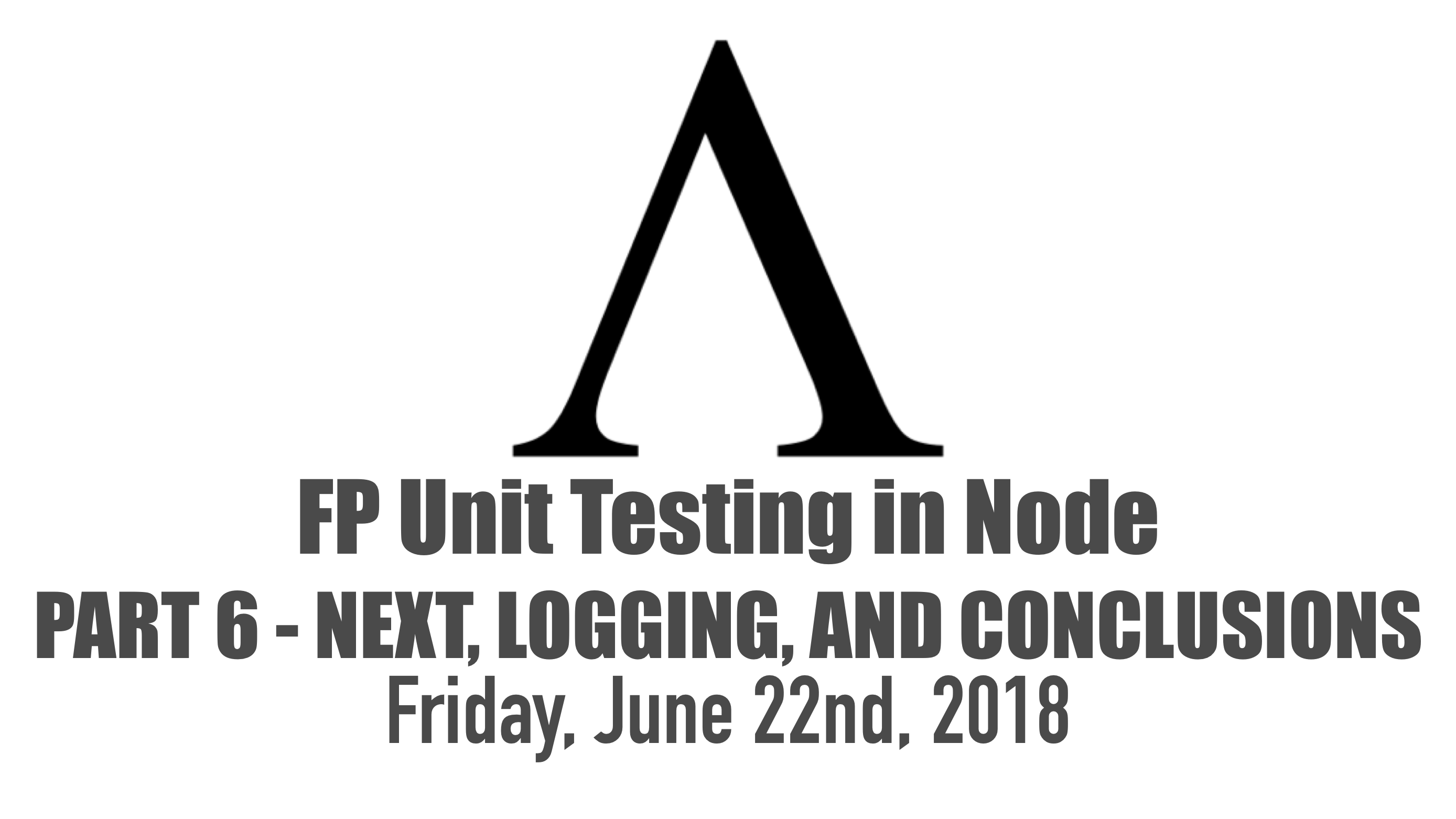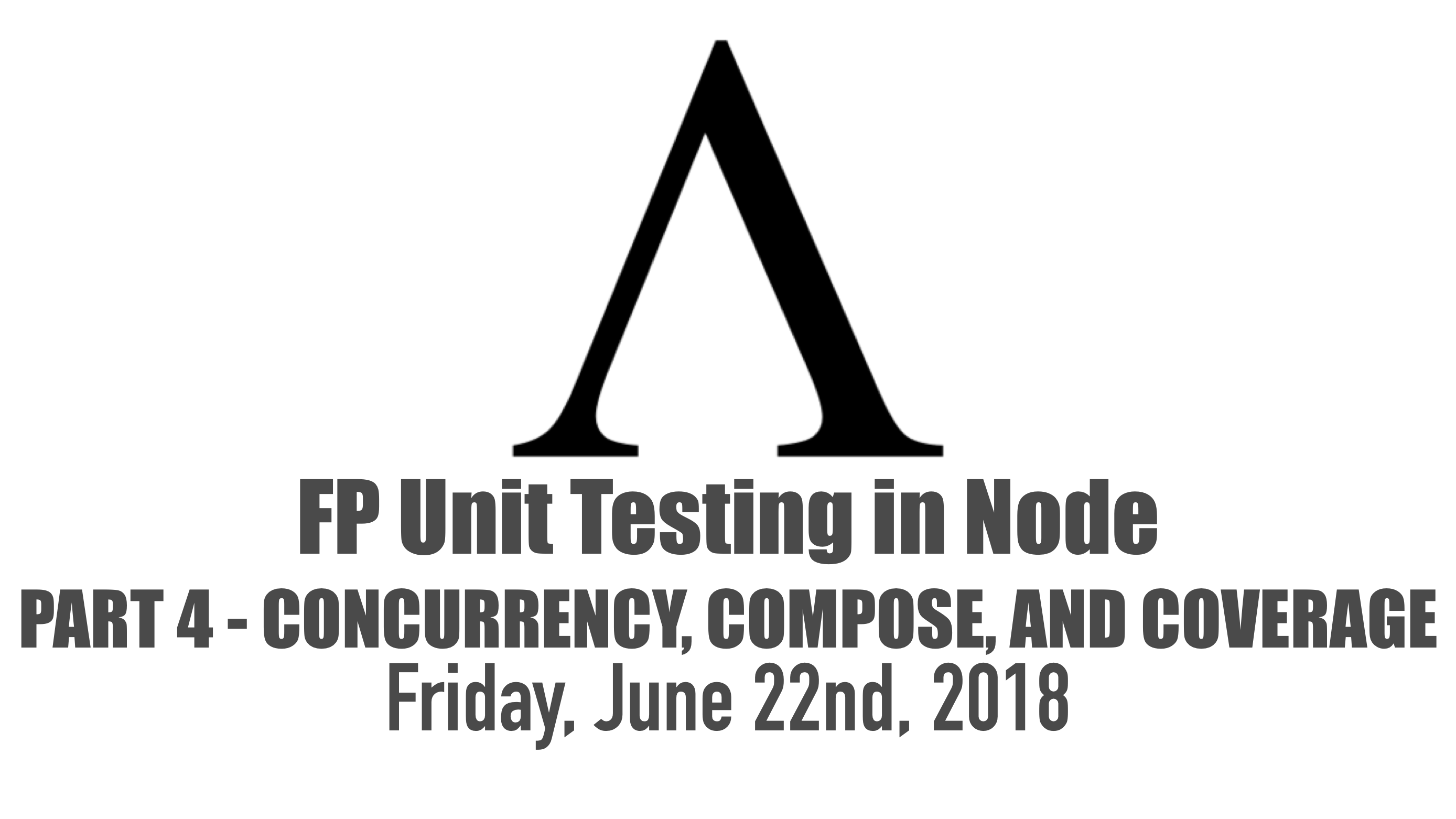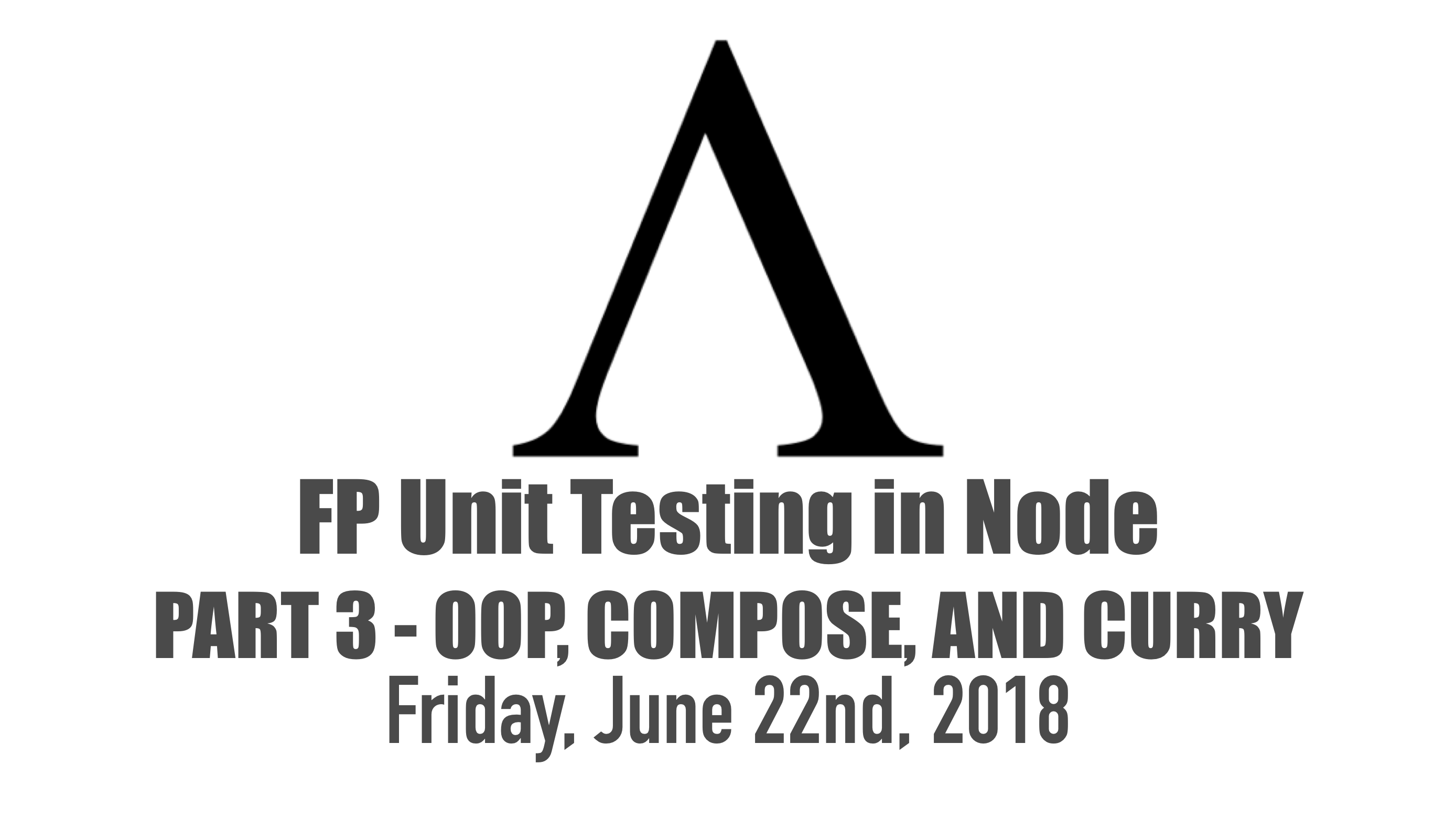Next, Logging, and Conclusions
Welcome to Part 6, the final installment in this series. Below we cover unit testing the noop next, how to create pure functions that wrap noop so you can compose them, and finally using code coverage to strategically hit the last code that’s not covered.
(more…)



